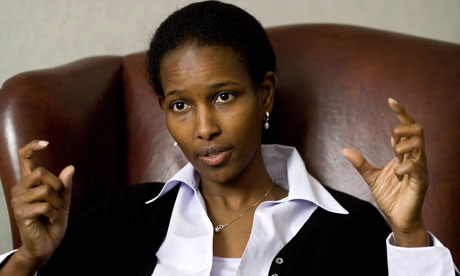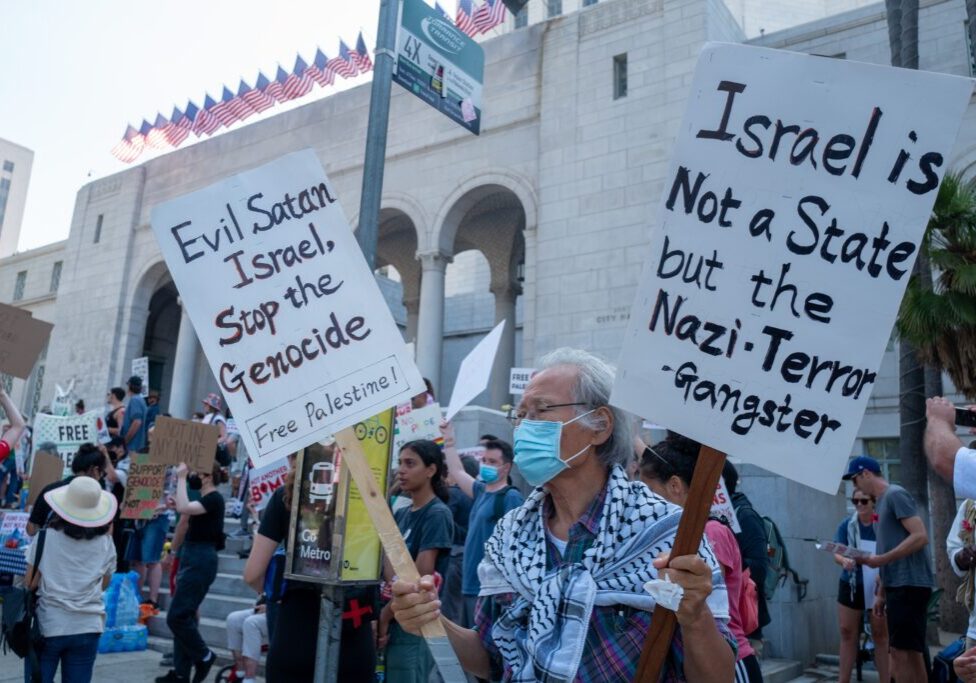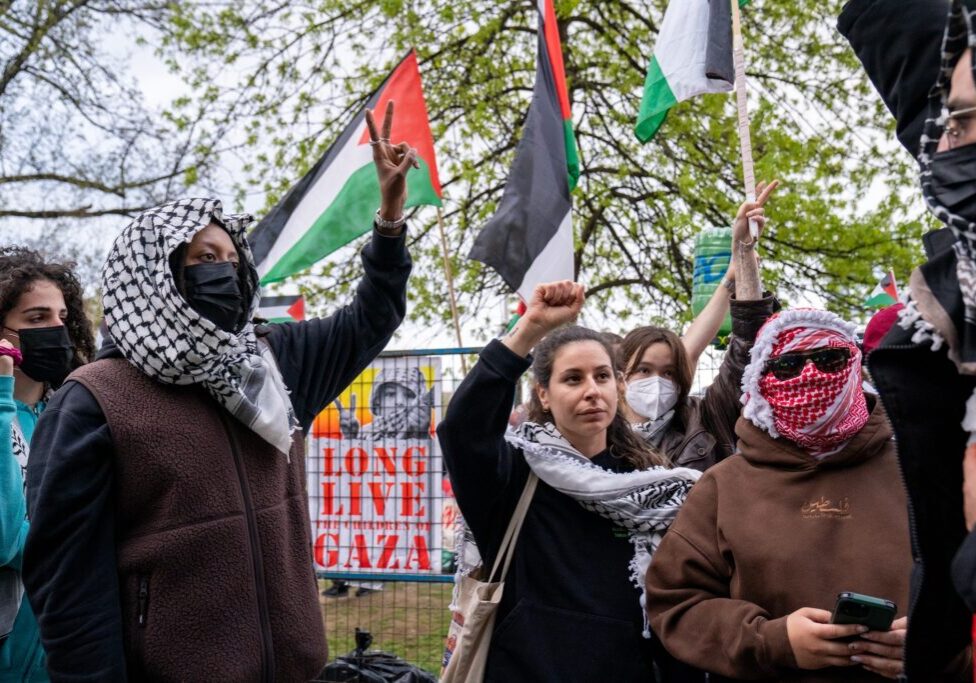Australia/Israel Review
Biblio File: To Medina and Back
Aug 31, 2015 | Michael Totten

Heretic: Why Islam Needs a Reformation Now
Ayaan Hirsi Ali, Harper Collins, 2015, 272 pages, $29.95.
Michael Totten
In April of last year, Brandeis University offered Ayaan Hirsi Ali an honorary degree for her tireless campaigning for women’s rights in the Muslim world. But little more than a week after announcing that she would be honoured at the University’s commencement ceremonies, Brandeis rescinded its offer owing to Hirsi Ali’s record of bluntly criticising Islamic oppression. “We cannot overlook that certain of her past statements are inconsistent with Brandeis University’s core values,” read the official withdrawal statement.
The sad irony of this cowardly betrayal is that Hirsi Ali would soon write a book arguing that Islam is not an irredeemable theology of hatred and violence and that the key to its integration into the modern world lies in the religion’s vast majority of peaceable adherents. That book is Heretic: Why Islam Needs a Reformation Now, an important work whose impact will depend on its acceptance from Western thinkers and dissemination among Muslims across the nations.
Hirsi Ali knows whereof she speaks. She was raised in a strict Muslim household in her native Somalia and continued to bear the brunt of Islamic violence in Saudi Arabia and Kenya before fleeing to the Netherlands in 1992 to escape an arranged marriage. In the West, she became an outspoken atheist in the mould of Richard Dawkins, Sam Harris and the late Christopher Hitchens. Though her polemical style has mellowed recently, her sense of purpose has not wavered. In Heretic, her third book, she calls for nothing short of a Muslim reformation.
While Hirsi Ali maintains that most Muslims are peaceful, she points out that the actions of the violent minority are nevertheless sanctioned by the religion itself, and she quotes the relevant verses to prove it. There is much brutality in the Jewish and Christian Bibles, of course, but worldwide movements in which Christians and Jews cite scripture to justify mass murder or crimes against humanity simply do not exist in the 21st century. These older religions have reformed or interpreted the brutality out of their traditions.
Much of the Muslim world, by contrast, rather than scrutinising and nullifying scriptural barbarism, either embraces it or pretends it’s not there. “The majority of otherwise peaceful and law-abiding Muslims,” Hirsi Ali writes, “are unwilling to acknowledge, much less to repudiate, the theological warrant for intolerance and violence embedded in their own religious texts.”
Westerners, of course, habitually deny it as well. When Mohammed Bouyeri assassinated Hirsi Ali’s Dutch colleague and filmmaker Theo Van Gogh in 2004, he used a knife to pin to his victim’s chest a five-page letter addressed to her. “Islam will be victorious through the blood of the martyrs,” it read. And yet a number of academics, activists, and journalists ignore those blood-stained words and proclaim Islam a religion of peace and terrorism a function of “socioeconomic deprivation.” Hirsi Ali will have none of it. “We should at least discuss the possibility,” she writes, “that he means what he says.”
So her book serves two purposes: to convince Westerners that an Islamic reformation is both necessary and possible, and to show reformist Muslims who are willing to listen which parts of the tradition need to be altered and how.
Hirsi Ali admits that she’s no Martin Luther with 95 theses nailed to a mosque door, but she writes that Islam desperately needs “some other option between apostasy and atrocity.” She singles out five core concepts that need to be overhauled: the Prophet Muhammad’s infallible status, the emphasis on the afterlife over this life, Sharia law, the practice of “commanding right and forbidding wrong,” and – most important from the West’s point of view – the imperative to wage jihad.
She divides Muslims into three sets. First there are those Hirsi Ali calls the Mecca Muslims – ordinary, traditional, peaceful Muslims who follow Muhammad’s relatively docile example during his years in Mecca when he first invited others to join him. Then there are the Medina Muslims, the sometimes violent minority that adheres instead to the Prophet’s example when he moved to Medina and attacked those who wouldn’t come on board. This group includes the Muslim Brotherhood, Hamas, al-Qaeda, ISIS and the rulers in Iran. The Mecca Muslims are more numerous than the Medina Muslims – they are in fact the outright majority – but they are also passive. While they accept non-Muslim “infidels,” they also accept Medina Muslims.
A third group, however, is not passive. These are the dissidents, or those Hirsi Ali calls the Reforming Muslims. They include former Muslims like herself and, more significantly, the practicing Muslims, imams, and religious scholars who wish to modernise their faith for the 21st century. While an innocent bystander might be injured or killed in a terrorist attack, Reforming Muslims are in the most danger because they’re often personally targeted and hunted down.
Hirsi Ali notes that it wasn’t always this way. A millennium ago, ijtihad – reasoned interpretation of Muhammad and the Koran – flourished in Islam. The Mu’tazila school of thought encouraged openness, and it thrived for 200 years in Baghdad, almost as long as the United States has existed. But traditionalists slammed the “gates of ijtihad” shut, and they’ve remained shut in the mainstream for more than a thousand years.
“Islamic doctrine is adaptable,” Hirsi Ali writes. “Certain parts of the Koran were abrogated over time. So there is no reason to believe the militant verses of the Medina period should always be given priority. If Muslims wish their religion to be a religion of peace, all they have to do is ‘abrogate’ those Medinan verses.”
Those who attempt do so, however, are risking their lives. In a time when drawing the wrong cartoon can get someone killed in Texas or France, repealing parts of the Koran in Riyadh requires uncommon bravery. Set aside the views of ISIS and al-Qaeda; the recognised governments of Saudi Arabia, Pakistan and Sudan consider such action a hanging offence. “The clerics fear that even the smallest of questions will lead to doubt,” Hirsi Ali writes. And “doubt will lead to more questions, and ultimately the questioning mind will demand not only answers but also innovations. An innovation in turn will create a precedent… Soon people will be innovating themselves out of their faith altogether.”
Clerics are right to worry. The chain of insight Hirsi Ali describes marks the path out of Islamism. She is, in fact, a living example of the process. Hirsi Ali was raised a Mecca Muslim and joined the Muslim Brotherhood as a young adult, yet today she is an atheist and a Medina Muslim’s worst nightmare. Hence the permanent target on her back for heresy and apostasy.
It is understandable, then, that up until a few years ago, Hirsi Ali thought Islam was unreformable. And something of an intellectual industry has sprouted up in the West for making that case. Somewhat surprisingly, however, she claims that the Arab Spring – botched as it was – proved her wrong. While it facilitated the rise of some Islamist and jihadist movements, it also gave millions of Muslims an opportunity to renounce them. Islamists came to power in Tunisia and Egypt, for example, but were quickly removed in spasms of buyer’s remorse. Hirsi Ali cites a 2014 Pew Research Center poll surveying 14,000 Muslims worldwide, showing that huge majorities, almost everywhere, fear the Medina Muslims – 92% of Lebanese, 80% of Tunisians, and even 75% of Egyptians. It remains to be seen whether or not those majorities become the catalysts of a reformation.
In the meantime, we are where we are. ISIS controls vast swaths of Syria and Iraq, and is expanding into Libya and Yemen. Bombs rip through markets in Baghdad. Foreign oil workers are beheaded in Libya. Cartoonists and Jewish citizens are assassinated in Paris, café patrons are taken hostage in Sydney. The majority of the world’s Muslims may stand aghast, but the perpetrators are adherents of Islam – no matter who admits it.
Most Muslims are still in denial because the ramifications of recognising these monsters as their co-religionists are staggering. But, as Hirsi Ali notes, they’ll eventually have to face the truth. What’s more, the rest of us have a part to play in pressing the issue. “If Muslims simply refuse to renounce jihad completely,” she writes, “then the next best thing would be to call their bluff about Islam being a religion of peace.” That might be too much to ask of the folks at Brandeis, but Hirsi Ali offers a fine example for the braver souls among us.
Michael J. Totten is a contributing editor at World Affairs and City Journal and the author of six books, including Where the West Ends and Tower of the Sun. © Commentary magazine (www.commentarymagazine.com), reprinted by permission, all rights reserved.
This article is featured in this month’s Australia/Israel Review, which can be downloaded as a free App: see here for more details.
Tags: Islamic Extremism






